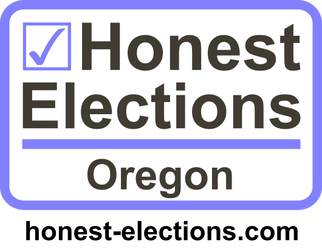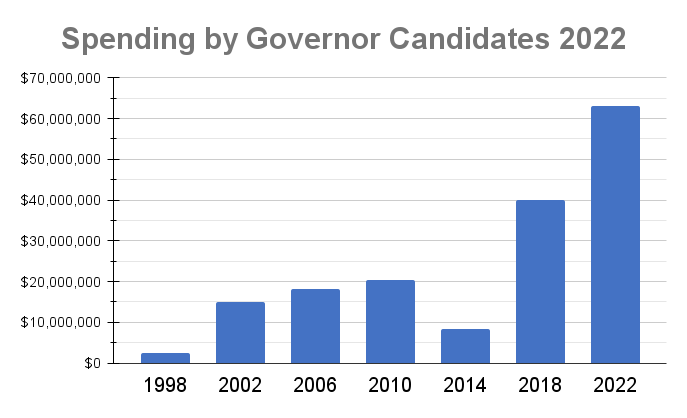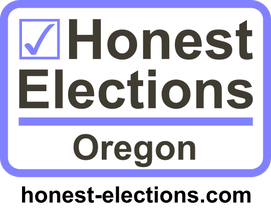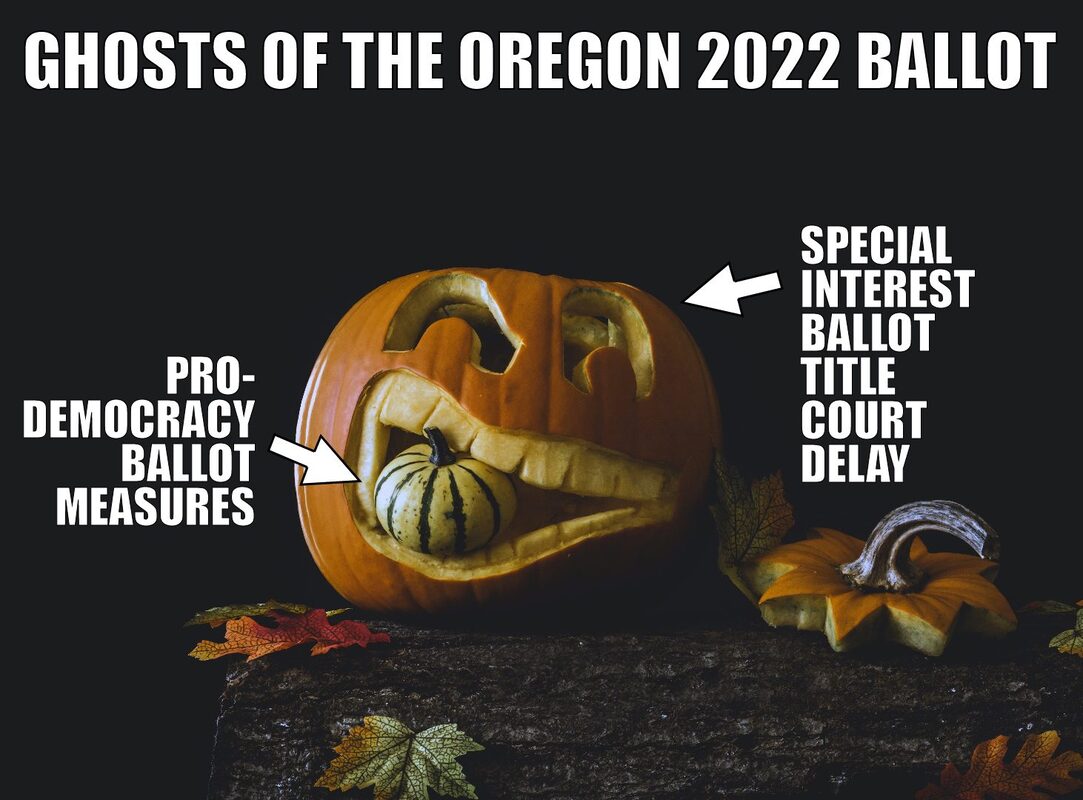Oregon voters could get a chance to decide whether to cap political donations and mandate transparency on who truly pays for political ads, under three proposed ballot initiatives filed this week.
The issues are hugely popular with voters, who overwhelmingly approved a state constitutional amendment in 2020 to explicitly allow campaign contribution limits and requirements that political ads identify the individuals or groups that paid for them. More than 1.7 million people voted for it, the most ever to support a ballot measure.
Now the good government groups that helped campaign for last year’s constitutional changes want voters to approve the types of political money limits and disclosures allowed under the amendment. They also want to create a public financing system, although not all of their proposals would do so.
Despite voters’ clear desire for donation limits and greater transparency, state lawmakers failed to agree on a plan to achieve those goals after months of closed-door negotiations with political players including big donors from across the political spectrum.
Supporters started gathering signatures Wednesday to qualify for ballot titles. If they succeed, they would need to gather 112,020 voter signatures to get any of the proposals on the November 2022 ballot.
“These measures can help to restore voters’ confidence in healthy democracy,” said Rebecca Gladstone, president of the League of Women Voters of Oregon and one of the chief petitioners on the initiatives. “Voters must know that our elections are fair and free of undue influence by powerful dark money at the expense of voters. We can accomplish this and restore trust in our political system.”
Jason Kafoury, another chief petitioner and a member of the group Honest Elections, said supporters consulted with national experts on campaign finance. He said he believes the donor disclosure requirements in all three proposed initiatives would be the strongest in the nation. Honest Elections is the group behind campaign contribution limits that voters passed in Multnomah County in 2016 and Portland in 2018.
Under the proposals, groups such as political nonprofits would be required to identify their top donors in all advertising and other communications to influence elections, if those donors chipped in more than $5,000 each. Political nonprofits are often referred to as “dark money” groups because they can keep their donors anonymous.
Additionally, Kafoury said, “All of these measures would prevent rich people from writing six-figure checks to candidates.” That’s already happening in the leadup to the 2022 gubernatorial primary and general election. Four years ago, Nike co-founder Phil Knight gave much more: $2.5 million directly to Republican candidate Knute Buehler.
Kafoury and other advocates for campaign finance reform negotiated for more than three months with a variety of groups that tend to support Democratic candidates and left-leaning policy initiatives, but those groups ultimately decided not to support any of the proposals. Kafoury said supporters needed to move ahead now to have a chance at getting any of the initiatives on the ballot in November 2022 because “the process is so cumbersome, time consuming and expensive” and the pandemic has only added to the challenges.
Oregon’s powerful public employee unions were among the groups that got a say in shaping two of the proposed ballot measures, initiative petitions 43 and 44. SEIU 503′s political action committee has raised $1 million annually in recent years and is among the largest donors to Democratic legislative candidates and candidates for statewide offices such as secretary of state and governor. A spokesperson for the union declined to comment on why its leaders decided not to support the proposed contribution limits and donor disclosure requirements. The associate director for another large union, AFSCME, did not respond to calls for comment.
In recent meetings, the unions and progressive political groups indicated they were concerned about two aspects of the initiative proposals in particular, Kafoury said: provisions that would require disclosure of major donors to political nonprofits buying ads and allow people to get a court to weigh in on alleged campaign finance violations. Currently, it’s up to the partisan elected secretary of state to decide if a candidate or entity violated Oregon campaign finance laws.
“From a good government standpoint, our perspective was we’re not convinced the secretary of state is going to adequately investigate these claims,” Kafoury said.
The main differences between the proposals, which supporters will test for voter support, fundraising potential and level of opposition, is that initiative petition 43 includes a public financing system that would match small donations up to $8 million in the governor’s race and much less in other state races. Initiative Petition 45, which supporters did not negotiate with political groups and unions, has lower contribution limits including for the type of political action committee that could be used by unions. It also calls for more stringent enforcement of violations.
Supporters negotiated initiative petitions 43 and 44 not only with public employee unions but also with a variety of groups that tend to support Democrats, including Coalition of Communities of Color, Oregon League of Conservation Voters and Pro-Choice Oregon. Those groups do some of their political work through nonprofits.
Under the proposals, individual donors could give no more than $2,000 to a candidate for statewide office per primary or general election cycle and political parties could give a candidate no more than $50,000 per cycle.
Small donor committees such as unions could accept contributions of up to $250 per person per calendar year. They could give $20,000 per election cycle to a statewide candidate and $10,000 to a legislative candidate per cycle, although organizations with large numbers of donors could give much more: $50 from each individual Oregon donor’s contribution to the political action committee. Only donations from people who live, work or attend school in Oregon would count.
Ads for or against a political candidate or initiative would have to disclose the top four funders and the types of business from which the funders generate income.
Penalties would be much higher than they currently are in Oregon, with fines of “at least the amount of the unlawful contribution or expenditure, including amounts not properly disclosed or spent on ads that do not comply with the disclaimer requirements,” according to supporters’ summary of IP 43. In addition to status quo enforcement by the Oregon secretary of state and attorney general, the initiative would allow people to appeal a case in circuit court if a case involving an alleged violation of at least $1,000.
The directors of two political groups that helped to shape initiative petitions 43 and 44 but ultimately decided not to support them said they broadly support campaign finance reform. However, they said it would take years rather than months to develop political money limits and transparency requirements that would not hurt the operations of some of their partner organizations.
“Unfortunately because of how complex this policy area is, the time ran out,” said Christel Allen, executive director of reproductive rights group Pro-Choice Oregon, formerly NARAL Pro-Choice Oregon. Allen said it would be better to wait until 2024 to fine tune the proposal to be put before voters.
The need to advise large donors that their contributions might trigger advertising disclosure requirements, which the current proposals would necessitate, would pose a burden on political committees, Allen said. But, she said, that warning could be critical, as some donors highly value their privacy. “When it comes to those of us who work to defend abortion access, unfortunately our opponents have a history of violence,” she said.
Imani Dorsey, interim executive director of the small political nonprofit Washington County Ignite, said the group spent between $15,000 and $20,000 on elections in 2020. The organization works to build a leadership pipeline from young people who are Black, indigenous and people of color as well as LGBTQ. Dorsey said small groups like hers are already tight on resources and complying with new political spending regulations would reduce their ability to fulfill their mission. “The provisions in the measures would just make things really hard and add administrative things we aren’t able to accommodate,” Dorsey said. “We really see this as an equity thing.”
Kafoury said regardless of what Oregon voters do in the coming months, forces across the nation will continue to shape how powerful interests spend money to influence elections. He said he is worried the conservative majority on the U.S. Supreme Court could further expand the flow of dark money. “We understand this is a long-term battle, that the forces of big money are continually going to try to influence elections.”
Correction: This article has been updated to reflect that only one of the three proposed initiatives contains a public financing system.
— Hillary Borrud





